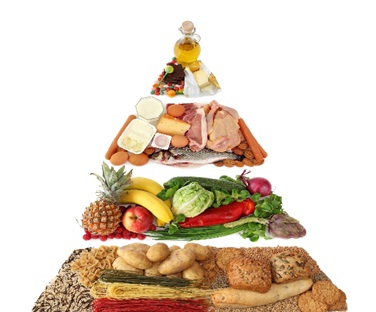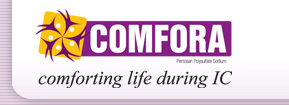Diet and IC

Too Much Fluid
Sure, you need to stay hydrated to keep your body healthy. But drinking too much water -- or any other fluid -- could mean more trips to the bathroom if you've got urinary urge incontinence related to overactive bladder (OAB). Your healthcare provider can best advise you on what amount is appropriate for you. And drink most of those fluids during the daytime; limit your fluid intake in the evening so you don't have to get up at night to go to the bathroom.
Too Little Fluid
Skimping on fluids might seem like it would help curb urinary urge incontinence, but this strategy can backfire by irritating the bladder and promoting infection. And while recent research suggests that people don't need to drink eight glasses of water per day, you still need to drink. How much? Experts recommend drinking at least one liter (about one quart, or four cups) of fluid per day. You also get about 20% of your total water intake from food.
Alcoholic Beverages
Beer, wine, or liquor -- in any form, alcohol is dehydrating. But it dehydrates by increasing the amount of urine -- which means more bathroom visits when you drink alcoholic beverages. Alcohol also interferes with brain signals to the bladder about when to release urine. So if you have urinary "urge incontinence," also called overactive bladder (OAB), you may want to cut down on or eliminate alcohol.
Coffee, Tea, Energy Drinks, Colas
Caffeine can also stimulate the bladder and act as a diuretic, causing you to produce more urine. Drinking less -- or no -- caffeinated beverages could help you control an overactive bladder, but you might not have to quit coffee, tea, energy drinks, or colas cold turkey. Try switching to decaf beverages, low-acid coffees, and non-citrus herbal teas.
Chocolate Has Caffeine, Too
Chocolate is another caffeine source -- and unfortunately there's no decaf version. Can't give up chocolate? You may not have to. Along with cutting back or avoiding chocolate late in the evening, try switching to chocolate with less caffeine, like white chocolate.
Acids: Citrus Fruits and Juices
Citrus fruits and citrus juices, like oranges, grapefruits, clementines, lemons, and limes, are all acidic. Because acids can irritate the bladder, try cutting back on acidic foods to see if it eases your urinary urge incontinence.
Pineapple: Also an Acidic Fruit
You may find pineapple isn't your friend either if you've got overactive bladder. That's because -- you guessed it -- pineapple is acidic, just like citrus. If you're looking to add a Caribbean perk to a dish, try switching to shredded coconut instead.
Also Acidic: Tomatoes
Tomatoes are another acidic food that can trigger urge incontinence symptoms. And unfortunately for tomato lovers, it's not just the produce itself that's an irritant. Tomato-containing foods like spaghetti sauce, chili, tomato juice, and ketchup can also increase leakage.
Cranberries and Cranberry Juice
Cranberries may help prevent bladder and urinary tract infections in some people. However, because they are acidic they could spell trouble for some people with an overactive bladder. If it bothers you, cut your use. Reducing or eliminating acidic foods and drinks may have another benefit -- it may help tame heartburn.
Carbonated Drinks
Fizzy drinks may irritate sensitive bladders. So if you've got an overactive bladder, you may want to try drinking carbonated beverages sparingly or skipping them completely. Fizzy drinks include soft drinks, club soda, seltzer water, and other "sparkling" waters. And if your taste runs to Champagne or other sparkling wines, keep in mind that besides their fizz, the alcohol in those beverages could also be a trigger for people with overactive bladders.
Spicy Foods
Four-alarm chili. Fiery salsa. Wasabi. Spicy foods like these may do more than tingle your taste buds or make your eyes water. They can also be irritating for the bladder. Dialing down the spiciness may help keep you out of the bathroom. But that doesn't necessarily mean you're headed for a bland diet. Tinker with how much heat you can take without affecting your bathroom habits -- everyone is different, so finding your spice tolerance may be a matter of trial and error.
Sweeteners
Sugar, honey, and artificial sweeteners may trigger bladder symptoms, so limit your use of these items if they seem to affect how often you go to the bathroom. As with many of the other foods and drinks that may affect the bladder, you may need to do some experimenting to learn whether sweeteners make a difference to you. You could take a break from sweeteners and see how your bladder responds.
Onions Bite Back
You may love onions, but you may want to steer clear of them if you have problems with overactive bladder. Can't bear to be without onions in your sandwich and recipe arsenal? Try cooking the onions, which may make them easier on your bladder. Or switch to the milder, onion-like shallot instead. Sometimes just eating a smaller amount can help.
Banana, Grapes, and Apples
Along with citrus, other fruits may trigger urinary incontinence. Apples, bananas, and grapes may be some of those to blame. If you're having trouble with bladder control, it pays to know which foods -- and how much -- trigger your symptoms. If you suspect a food is a trigger, try excluding it from your diet, then adding small amounts back slowly.
Aged Cheese and Sour Cream
Some people find that creamy and rich, sour cream and cheese may make overactive bladder symptoms worse. Try switching to imitation sour cream or processed non-aged cheese if your bladder can't tolerate the real thing.
Condiments May Be a Problem
Lots of condiments contain acids or other bladder irritants -- so use them with caution. Mustard, soy sauce, vinegar, hot sauce, ketchup, and mayonnaise can all aggravate symptoms. To give your meals zing, instead try using tamer spices, extracts, and garlic.
Processed Foods
Artificial flavors, preservatives, and additives like MSG, benzyl alcohol, and citric acid may irritate the bladder. To avoid these problem ingredients, you'll need to read nutrition labels carefully. Another good way to control what's in your food: Cook at home more often. Use bladder-friendly fruits, vegetables, and whole grains.
Balanced Approach
Let's say you have coffee and an orange with breakfast, a soda with lunch, a chocolate bar as a mid-afternoon snack, and spicy Thai food and a nice glass of wine for dinner. That may sound yummy, but all of those items may affect your bladder. What are you supposed to do -- give them all up at once? Not necessarily. You might take one step at a time, notice if it helps, and take it from there. Your doctor can help with diet and bladder problems, so don't hesitate to ask.
Medications Matter
Drugs aren't foods or drinks -- but some may worsen urinary incontinence. For instance, some blood pressure drugs, such as diuretics or calcium channel blockers, relax the bladder and boost urine output. Some antidepressants make it harder for the bladder to contract. Muscle relaxants relax bladder muscles, and sleeping pills curb your awareness that the bladder is full. So if you've got a bladder problem, ask your doctor if it could be a side effect of your drugs.
